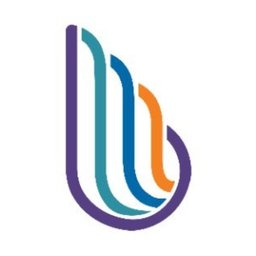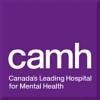Operations Leader Focus Mental Health
Job Description
Unity Health Toronto, comprised of Providence Healthcare, St. Joseph's Health Centre and St. Michael's Hospital, works to advance the health of everyone in our urban communities and beyond. Our health network serves patients, residents and clients across the full spectrum of care, spanning primary care, secondary community care, tertiary and quaternary care services to post-acute through rehabilitation, palliative care and long-term care, while investing in world-class research and education. Join our team in our mission to continue to put patients and families at the centre of everything we do, in the role of Operations Leader - FOCUS Mental Health.
The FOCUS Community Mental Health Program is a program of Unity Health Toronto Mental Health and Addictions Service that is funded by the MOHLTC through other votes or protected funding. Other votes funded community mental health programs are required to abide by a MOHLTC multi-sectorial accountability agreement which stipulates the number and type of staff who are to be employed. FOCUS Multi-sectorial Accountability Agreement (MSAA) includes dedicated funding for a full-time team leader role in addition to a full-time Clinical Leader Manager to provide clinical and technical expertise to the team of interprofessional mental health clinicians of nurses, social workers, occupational therapists, case managers, personal support worker, peer support worker, employment specialist, rehabilitation therapist, and psychologists.
The FOCUS program is based on an evidence-based model of care called Flexible Assertive Community Treatment (FACT). The FOCUS program is required to follow set standards (FACT Team Standards) which stipulate that a practicing team leader be available to support the interprofessional team of mental health clinicians who are providing community outreach, intensive support, case management and comprehensive treatment and rehabilitation seven days per week. Services provided by the team are individualized for each client.
The FOCUS Community Mental Health Program provides services to clients who are 18-65 years old who are residing in the Mid East Health Link catchment who have serious mental health problems that significantly impair their ability to function and live well within the community, experience significant challenges in consistently performing activities of daily living, have had 2 or more psychiatric hospitalizations in the past 2 years or greater than 5 emergency room visits for mental health programs and who exhibit two or more of the following: significant challenges in maintaining a safe living situation, acute and/or chronic medical illness requiring intensive support, coexisting substance use disorder or criminal justice involvement in the context of mental health and addictions problems. Clients may require one-to-one support with medications, symptom monitoring and management, physical health needs, substance use issues, finances, housing or shelter, access to basic needs such as food or clothing, activities of daily living, educational issues, work or meaningful activity, legal issues, social activities, family issues and support networks. On-call support is available 24 hours per day. Clients can step up or step down their level of support within the team between Assertive Community Treatment and Intensive Case Management Services.
Duties & Responsibilities
CRISIS RESPONSE
Provides telephone crisis response for the FOCUS Team during regular business hours
Conducts mental status, suicide risk and crisis assessments and delivers crisis intervention via telephone for FOCUS clients who use the on-call pager
Works collaboratively with clients, families, community agencies and/or hospital staff who call the crisis pager to develop a crisis plan
Conducts one daily outreach visit with a FOCUS client who has been assessed to be in crisis and to require assertive community treatment level of care
PROMOTING EFFECTIVE TRANSITIONS IN CARE
Conducts hospital and jail outreach visits with FOCUS clients as required to promote their ongoing engagement with community mental health services
Assesses the evolving community care needs of FOCUS clients who are hospitalized or incarcerated
Develops client-centered discharge plans to promote effective transitions in care from hospital/jail to community
COLLABORATIVE CARE PLANNING
Identifies FOCUS clients with complex care needs who meet MOHLTC criteria for collaborative care planning
Chairs collaborative care planning meetings with clients, families and community agencies in attendance
Develops up to 100 collaborative care plans for FOCUS clients
Participates in the FOCUS program in the Mid-East Toronto Health Link (METHL) Coordinated Care Planning Community of Practice Working Group.
COACHING & MENTORING
Provides monthly 1:1 coaching and mentoring sessions for individual clinicians to promote ongoing practice development
Chairs weekly interprofessional recovery care planning meetings to review client goals and progress towards same
Facilitates a monthly journal club to promote knowledge translation and integration of best practices in community mental health care in clinical care
Assists with orientating new staff to the FOCUS team ensuring staff are familiar with program processes, policies and procedures
Provides educational in-service sessions for FOCUS staff on issues and trends in community mental health care.
OPERATIONAL RESPONSIBILITIES
Assesses all new referrals received from Central Intake Committee and through Access Point for fit with FOCUS program eligibility criteria
Requests additional collateral information from care providers as required to promote effective decision making around clinical dispositions
Advocates for appropriate level of care to be provided for new referrals during weekly Central Intake Meetings
Suggests alternative options for community care when FOCUS is not the right fit
Assigns new clients to FOCUS psychiatrists and clinicians using a rotational schedule
Advocates for discharge from the FOCUS program to a more appropriate level of care as required
Ensures Master List of client visit plans is up-to-date and accurate
Completes workload assignments for interprofessional clinicians on a weekly basis
Revises daily workload assignments for clinicians as required based on changing client and/or program priorities
Chairs daily morning interprofessional team meeting
Works collaboratively with team members to problem solve and resolve issues related to shared workload (ie. mismatch between work assignments and roles, workload imbalances)
Updates FACT communication board with client and community safety alerts
Monitors check in/check out protocol adherence by clinicians and escalates concerns to Clinical Leader /Manager as required
Works collaboratively with the Clinical Leader/Manager to develop and implement strategies to improve work flow processes to increase efficiencies in workload and service delivery
Collects data, prepares and submits statistical reports to meet MOHLTC requirements
Participates in quality improvement projects being implemented on the FOCUS team
Participates in FOCUS Operations meeting and Community Mental Health Team Leader meetings and monthly business meetings held by the Clinical Leader Manager
Participates in Mental Health and Addictions Service and hospital-wide committees as required.
Qualifications
Regulated Health Professional designation with registration with the Ontario College of Social Workers, College of Occupational Therapists of Ontario or College of Nurses of Ontario
Minimum five years of full-time experience working in a clinical capacity in a community mental health program
Demonstrated experience providing recovery-oriented mental health and addictions care to individuals living with mental illness and/or addictions
Previous experience coaching and mentoring students and/or staff preferred
Excellent knowledge of the community mental health models of care and standards of care
Excellent knowledge of the values, principles and practices of recovery-oriented care
Very good knowledge of the social determinants of health as well as the challenges faced by disadvantaged populations
Excellent communication and interpersonal skills
Excellent oral presentation and writing skills
Very good conflict resolution and mediation skills
Sound time management and organizational skills
Familiarity with quality improvement science is preferred
Excellent punctuality and attendance record
Unity Health Toronto is committed to creating an accessible and inclusive organization. We strive to provide a recruitment process that is barrier-free and in compliance with the Accessibility for Ontarians with Disabilities Act (AODA) and the Ontario Human Rights Code. We understand that you may require an accommodation at any stage of the recruitment process. When you are contacted, please inform the Talent Acquisition Specialist and we will work with you to meet your accommodation needs. We want to emphasize that all accommodation requests are handled with the utmost confidentiality, respecting your privacy and dignity.
#LI-MR1
MNCJobz.com will not be responsible for any payment made to a third-party. All Terms of Use are applicable.
Job Detail
-
Job IdJD3178940
-
IndustryNot mentioned
-
Total Positions1
-
Job Type:Full Time
-
Salary:Not mentioned
-
Employment StatusPermanent
-
Job LocationToronto, ON, CA, Canada
-
EducationNot mentioned



